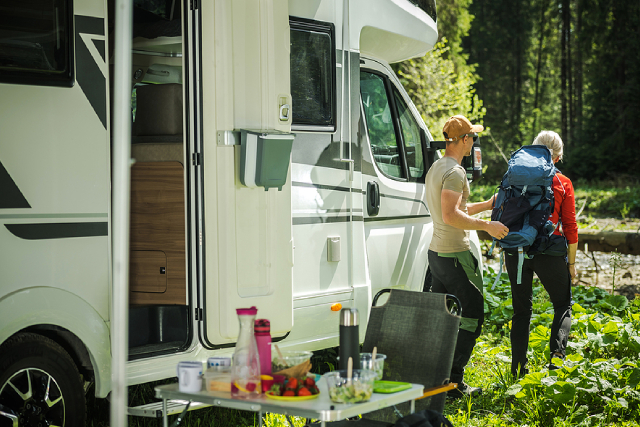
Escaping into nature has become an increasingly popular way to recharge, reset, and take a break from modern life. Whether you’re retreating into the jungle, hiking through mountain trails, or camping deep in the woods, going off the grid offers an unparalleled opportunity to disconnect from digital noise and reconnect with yourself. Many travellers find such getaways to be deeply therapeutic, a chance to slow down and embrace the simplicity of the natural world.
This type of experience is especially valuable for those seeking a wellness reset. The constant demands of city life, from work deadlines to screen fatigue, can take a toll on both physical and mental health. An off-grid retreat gives you space to breathe, unwind, and rediscover clarity. But while the promise of solitude and serenity is appealing, safety should never be an afterthought, especially when help isn’t just a phone call or quick drive away.
Here’s your essential safety checklist for your off-the-grid adventure:
1. Plan your route and share it
Before heading off, make sure your route is clearly mapped and shared with at least one trusted person. Provide your start and end points, estimated time of return, and any planned stopovers. If you’re trekking through wilderness or unfamiliar terrain, carry a physical map and a compass as backups, even if you have GPS tools. Knowing someone will raise the alarm if you don’t return on time can provide peace of mind.
2. Stock up on medical supplies
It’s critical to carry a fully stocked first aid kit tailored for remote locations. In addition to the basics (like bandages, antiseptic wipes, and painkillers), consider items like:
- Antihistamines for allergic reactions
- Antidiarrhoeals and rehydration salts
- Insect repellent and anti-itch cream
- A digital thermometer
- A small emergency splint
- Prescription medications (enough for your entire trip, plus extra)
If you have a pre-existing condition or are travelling with someone who does, check whether you might need additional medications or emergency treatments. For those with chronic illnesses or high-risk medical conditions, it’s worth researching medical assistance services in Singapore beforehand. Companies like EMA Global can offer valuable pre-trip guidance, especially if your travel involves high altitudes or unfamiliar environments.
3. Prepare for emergencies with the right contacts
When you’re off the grid, help can be hours or even days away. It’s important to carry:
- A satellite phone or personal locator beacon (PLB)
- Extra batteries or a solar-powered charger
- Emergency contact details written on paper
- A whistle for sound signalling
- A basic emergency plan in case someone gets injured or lost
Don’t assume your mobile phone will work in all remote areas. A satellite communicator with an SOS function can literally be a lifesaver. Also, save the contact details of international emergency responders and medical assistance services in Singapore. If you’re travelling abroad or crossing borders, knowing who to call and what your options are is key to fast intervention.
4. Check local hazards and weather
Before heading out, research the local terrain and environment. Is it snake country? Are there flash floods in the area? Could snowstorms or heat waves make conditions unsafe?
Make sure you have:
- Proper footwear and clothing
- Rain gear and layers for changing temperatures
- Water filtration systems or tablets
- Knowledge of local wildlife and how to respond to encounters
Altitude can also pose serious health risks if you’re hiking at high elevations. Learn how to spot altitude sickness, especially if you’ve never been to higher altitudes before. Symptoms like headache, dizziness, nausea, and shortness of breath can escalate quickly if ignored.
5. Pack smart and light
Packing light is essential when you’ll be carrying everything on your back. However, it’s also important to ensure that you have the right gear for safety and survival. Your must-haves should include:
- Multi-tool or Swiss army knife
- Waterproof matches and fire starter
- Emergency blanket
- Headlamp or torch with extra batteries
- Extra food rations (protein bars, dried fruits, etc.)
- Plenty of clean drinking water or a way to purify natural sources
If you’re going completely off-grid for several days, consider bringing a compact solar panel to keep essential devices powered.
6. Understand the costs of evacuation
Should something go wrong, and you require an emergency evacuation from a remote location, the costs can be surprisingly high. Depending on the location and urgency, the air ambulance cost alone can range from several thousand to tens of thousands of dollars.
That’s why having travel insurance that includes medical evacuation is so important. Always read the fine print to confirm that remote and international evacuations are covered. Some travellers also opt for additional coverage or a specific subscription with a trusted medical evacuation service provider for peace of mind.
In the event of a medical emergency, especially in remote areas without nearby hospitals, access to an air ambulance might be the only option to ensure timely treatment. Knowing how much it costs, how long it might take, and who to call helps you make better decisions under pressure.
7. Stay healthy on the trail
Remote areas can bring unexpected challenges to your health. To reduce risk:
- Wash hands regularly or use hand sanitiser
- Cook food thoroughly and keep perishables in airtight containers
- Rest well to prevent fatigue
- Hydrate often and avoid drinking from unfiltered water sources
Don’t push yourself too hard, especially on the first day. Let your body adjust to new conditions, temperatures, or altitudes gradually. And always listen to what your body is telling you. It’s okay to turn back if something doesn’t feel right.
8. Know your limits
It’s easy to be swept up in the thrill of adventure, but remember that safety always comes first. Know your own fitness level and experience, and don’t overestimate your ability to handle a route or survival situation.
Solo trips can be particularly risky if you don’t have strong experience in the wild. Whenever possible, travel with a companion, or at the very least, be in touch with someone at regular intervals using a communication device.
Conclusion
An off-the-grid getaway can be one of the most rewarding experiences you’ll ever have. From the beauty of untouched landscapes to the clarity that comes from solitude, there’s something truly special about disconnecting from the world. But it’s vital to prepare for the unexpected. With the right planning, supplies, and contacts, you’ll be able to enjoy your adventure with confidence.
EMA Global offers medical evacuation, repatriation, and air ambulance services, providing peace of mind wherever your journey takes you.

